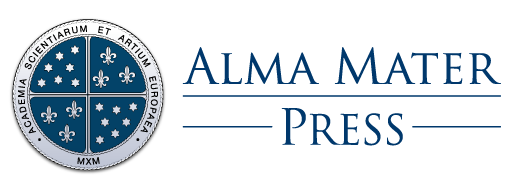THE ROLE OF SOCIAL COMMUNICATION IN MODERN ARCHIVE MANAGEMENT. AN ATTEMPT AT OUTLINING THE ARCHIVE–RESEARCHER–COLLECTIVE DYNAMIC IN THE CONTEXT OF THE INTERDEPENDENCE BETWEEN HISTORY AND MYTH
Keywords:
social communication, archive management, history, mythAbstract
It is self-evident that the management of various types of archives is impacted considerably by social communication. This in turn is no doubt necessitated by the various social changes increasingly prevalent in developing societies. Social communication has also a huge impact on the public perception of the archives and the understanding of their role in society, broadly defined.
Therefore, in anticipation of the ongoing social changes, archives should act to influence not only their own maintenance but also their perception within society. Basing the theory of archive management on the idea of social communication can bring numerous benefits to the institution, its employees and resources. In consequence, a twofold interaction takes place: the archive reaches out to meet social needs, while cultural and educational entities have the opportunity to use archival resources in their initiatives addressed to local communities.
Today, such cooperation is quite popular, widely undertaken and certainly well known. Many authors have devoted numerous studies to it, however a slightly different aspect of potential communication between archive and community would benefit from more attention. Namely, the role that archives could play in the shaping of social historical consciousness, also regarding the interplay of history and myth. The above-mentioned interaction is often conducted through an intermediary – a researcher, most commonly an historian, but it may be worth exploring the potential of the archives themselves for this kind of interactions.
Downloads
References
Pomorski J. (1991). Historyk i metodologia. Lublin: Wydawnictwo Uniwersytetu Marii Curie-Skłodowskiej.
Solarska M., Bugajewski M. (2017). Historia historiografii jako historia prawdy. Dwugłos o podstawach teoretycznych Historii historiografii Jerzego Topolskiego, Historia@ Teoria, 1/3, 123-130, Poznań: Instytut Wschodni.
Topolski J. (1996). Jak się pisze i rozumie historię. Tajemnice narracji historycznej. Warszawa: Oficyna Wydawnicza Rytm.
Topolski J. (1984). Metodologia historii. Warszawa: Państwowe Wydawnictwo Naukowe.
Wrzosek W. (2010). Historia – kultura – metafora. Powstanie nieklasycznej historiografii.
Wrocław: Wydawnictwo Uniwersytetu Wrocławskiego.

